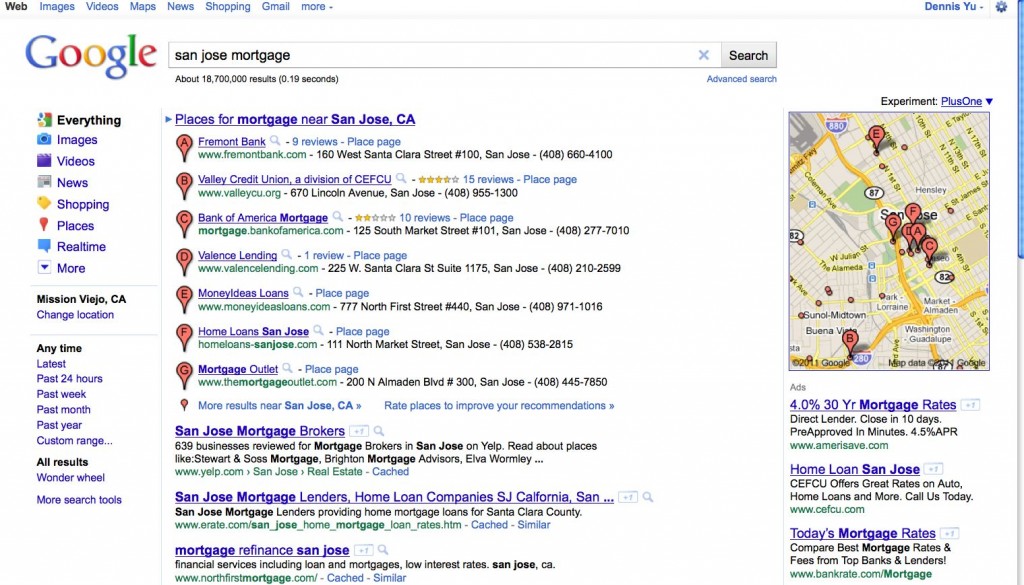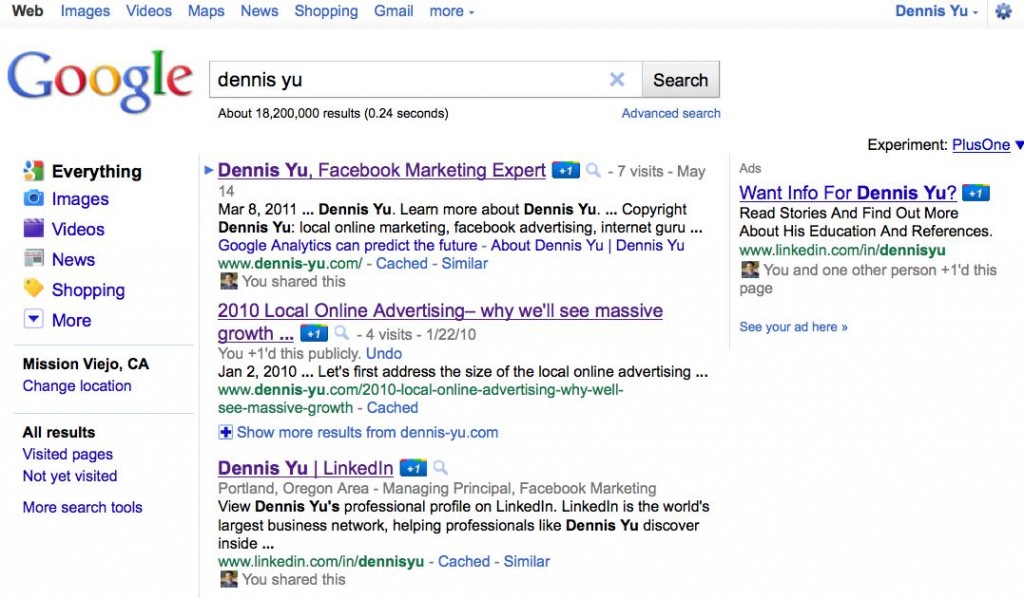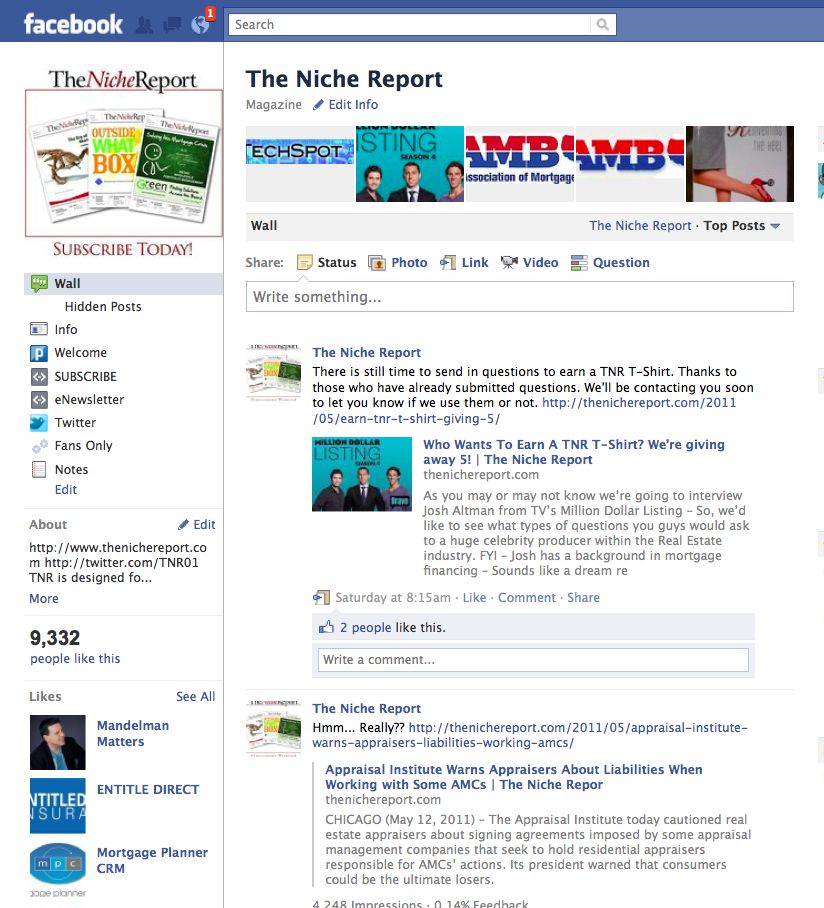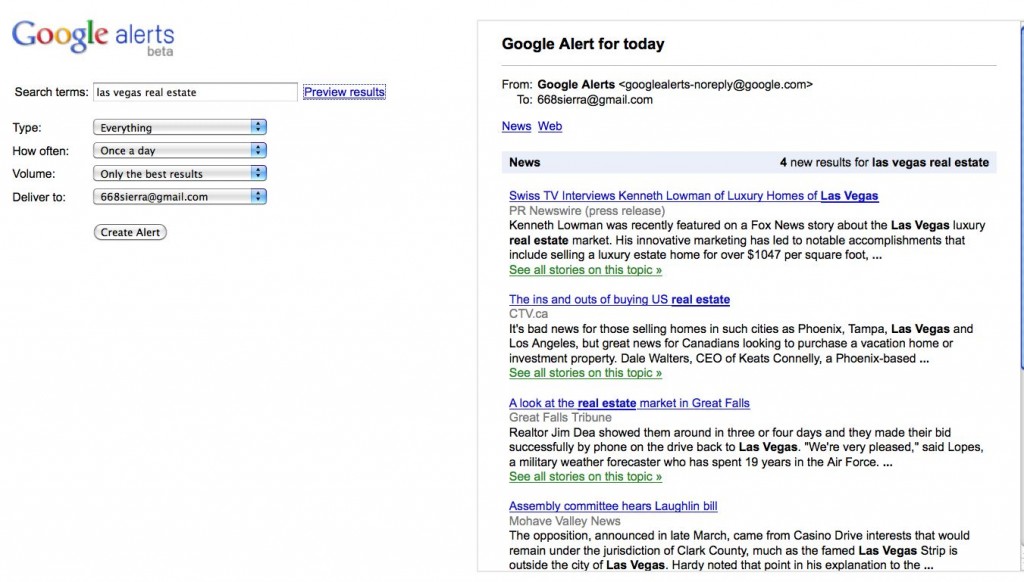
Breaking news: Just because a celebrity can post what they just had for lunch and get a ton of attention, doesn't mean you can do the same. And just because President Obama has 20,414,968 fans doesn't mean that you will, too. Yet the other end of the spectrum-- folks who say that social media is not fertile ground for lead gen - they're equally ridiculous.
You're busy running your business, so you probably don't have time to hang out on Facebook all day. Here's what you need to know to be effective in social media without trying to become a full-time social media consulting firm. We're talking how to be effective in ten minutes a day.
- Social media is just a fancy term for online word of mouth: You know how you get referrals from friends and customers? Facebook is how these formerly invisible connections get manifested online. Therefore, you want to leverage the power you have in the real world - testimonials, endorsements from influential people, the goodwill you have in your neighborhood - and place that on your website, Facebook page, print brochures, Craigslist listings, and so forth.
- Inventory these trust assets: Don't have these testimonials, awards, community involvement, or other items to demonstrate credibility? Time to start assembling them now. Trust me - even if you're camera shy, a real picture of you is going to perform a lot better than that stock photography stuff which features a bunch of smiling people shaking hands in front of that house.
- Get the people who love you to share it: Do a search on your city name plus "refinance" or whatever your money keywords are. Note that reviews are more and more important in search results. Don't you trust them, too, when you're deciding what to buy or who to select for professional services? And if you haven't noticed, social media results are showing up in regular search, while regular search is showing up in Facebook - yes, Bing powers Facebook search.

- Don't spam your twitter or Facebook with every property you manage or loan you close: You wouldn't do it among your friends, so don't do it publicly in social channels. Instead, post items that are interesting in the community. Maybe they indirectly demonstrate your expertise, connections in the area, or sense of humor. But don't post what you just had for breakfast.
- Be a real human being: So it's okay to post pictures of your family. You want folks to get a sense of what it's like to work with you. Make them feel comfortable that if they pick up the phone that your online presence accurately reflects who you are in real life. Most mortgage brokers commit the sin of creating these fake "banking" sites with marble columns and formality. Prospective clients are looking not for examples of Roman architecture, but for someone they can trust to do business with.
- Start tying your stuff together: Do you have your LinkedIn, Facebook, Twitter, blog, and other properties connected to each other? For example, are you using Google's new +1 functionality, which spreads your recommendation among the search results from friends? Note that these blue +1 boxes even show up in ads, so that will help increase your ad effectiveness. The more profiles you tie together (within reason), the stronger signal you're sending about your brand to search engines. The term for this is citations.

- Like pages that your customers would frequent: Did you know that when you become a fan of a Facebook page by clicking like that anyone who comes to that page sees it? In fact, if the name of your page is "John Smith: [Your_City] Mortgages", that's what will show up and it can't be removed. Call it light spam or a variation of "you're known by the company you keep." Did you know that now you can use Facebook as the page itself? For those who missed this subtle, but powerful change, you can go around Facebook as your page (not just you) to comment on other pages. Milk this.

- Advertise on Google Local: See the blue dot on the map? That's an ad. And when people click on it, you can send them to your website, Facebook page, or even just a special you have on your Google Place Page. The ad product, which Google sells as a monthly fixed price service is called "Google Boost" and it's a yellow pages killer.
- Advertise on Facebook: But don't just run any ads. A couple months ago, they came out with a product called "Sponsored Stories.” If you have less than 200 fans on your page, run "Sponsored Like Stories" against users who are 25+, married or engaged, and live in high income regions you serve. If you have a lot of fans, run "Sponsored Post Stories" to get the message out to folks who have become fans of your page. The goal of your Facebook page is to warm up folks who don't yet know you so that they will contact you when the time is right. You're not going to close a loan from a Facebook ad or page alone, sorry. Not sure how much to spend? A good rule of thumb is ten percent of your current marketing budget on Facebook and twenty five percent for Google AdWords. If you sell something high end, then LinkedIn ads might work for you. Twitter ads won't work for you at all unless you are targeting things like credit repair and low income demographics.
- Set up Google Alerts: You want to listen. This one requires intermediate skill, but has multiple bangs for the buck. Go to google.com/alerts and choose words that you want to rank on. Set it up to send you alerts weekly if you're super busy, otherwise choose the daily digest option. When you see something interesting, read the article and then comment on it. That will help you rank on Google and Facebook searches (via Bing) and give you ideas for content on what you can place on your blog and Facebook page. If Google thought it worthwhile to deliver in your alerts feed, then your attaching your comments to that post (which will link back to your profiles set up in these earlier steps) will reinforce why you should rank, too.
 Okay, so this takes more than 10 minutes to get all this in place - maybe it takes an hour a day for a week. But once you get it going, the on-going maintenance can really be 10 minutes a day, especially if you can leverage low cost staff (high schoolers, your kids, other staff when idle). Think of social media not as this separate channel, but an integrated marketing effort that amplifies everything that you're already doing.
Okay, so this takes more than 10 minutes to get all this in place - maybe it takes an hour a day for a week. But once you get it going, the on-going maintenance can really be 10 minutes a day, especially if you can leverage low cost staff (high schoolers, your kids, other staff when idle). Think of social media not as this separate channel, but an integrated marketing effort that amplifies everything that you're already doing.
Consider how much information is in your own head and that of your staff. Now what percentage of this is on the internet? Probably less than one percent. What we want to do is expose this good stuff to your customers in an automated way. Do you have a video where you're giving a talk in the community or can you create some with a quick ten minute Flip video camera? Get some of this down and then load it up to your website as the greeting on your homepage. This isn't Hollywood, so don't expect perfection - your customers certainly aren't.
Social media success is unlocking that content and trust you already have. If you're thinking it's about programming and technical details, then you're approaching it all wrong. The technical stuff you can put on elance.com or other job boards and pay someone $100 to get it coded up for you. The content, knowledge, and trust that only you have - now that cannot be replaced!
 Dennis Yu is Chief Executive Officer of BlitzLocal, an agency that helps small businesses generate more leads online. You can reach Yu at facebook.com/dennisyu or email Yu at [email protected].
Dennis Yu is Chief Executive Officer of BlitzLocal, an agency that helps small businesses generate more leads online. You can reach Yu at facebook.com/dennisyu or email Yu at [email protected].



